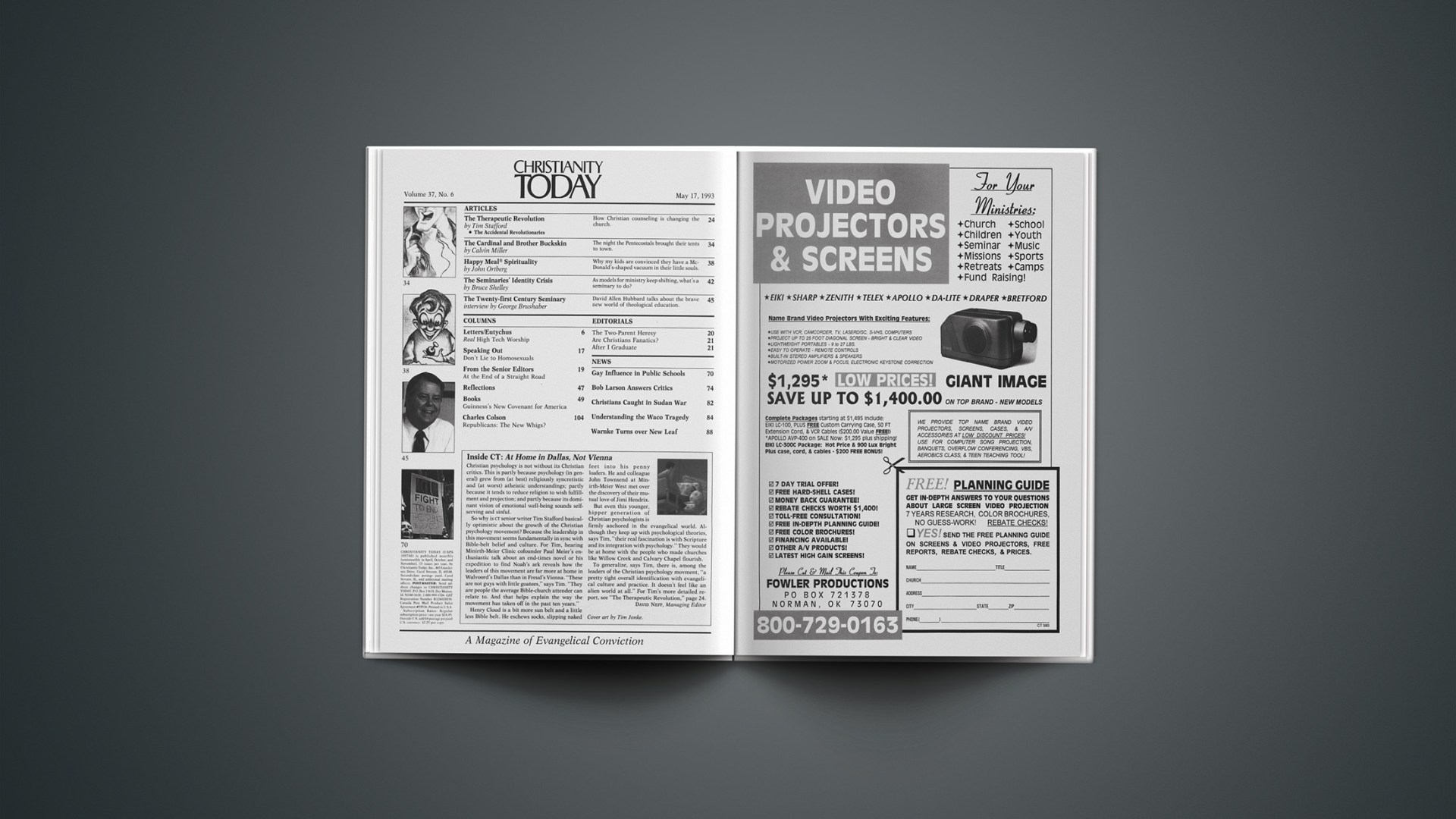Christian psychology is not without its Christian critics. This is partly because psychology (in general) grew from (at best) religiously syncretistic and (at worst) atheistic understandings; partly because it tends to reduce religion to wish fulfillment and projection; and partly because its dominant vision of emotional well-being sounds self-serving and sinful.
So why is CT senior writer Tim Stafford basically optimistic about the growth of the Christian psychology movement? Because the leadership in this movement seems fundamentally in sync with Bible-belt belief and culture. For Tim, hearing Minirth-Meier Clinic cofounder Paul Meier’s enthusiastic talk about an end-times novel or his expedition to find Noah’s ark reveals how the leaders of this movement are far more at home in Walvoord’s Dallas than in Freud’s Vienna. “These are not guys with little goatees,” says Tim. “They are people the average Bible-church attender can relate to. And that helps explain the way the movement has taken off in the past ten years.”
Henry Cloud is a bit more sun belt and a little less Bible belt. He eschews socks, slipping naked feet into his penny loafers. He and colleague John Townsend at Minirth-Meier West met over the discovery of their mutual love of Jimi Hendrix.
But even this younger, hipper generation of Christian psychologists is firmly anchored in the evangelical world. Although they keep up with psychological theories, says Tim, “their real fascination is with Scripture and its integration with psychology.” They would be at home with the people who made churches like Willow Creek and Calvary Chapel flourish.
To generalize, says Tim, there is, among the leaders of the Christian psychology movment, “a pretty tight overall identification with evangelical culture and practice. It doesn’t feel like an alien world at all.” For Tim’s more detailed report, see “The Therapeutic Revolution,” page 24.
DAVID NEFF, Managing Editor










